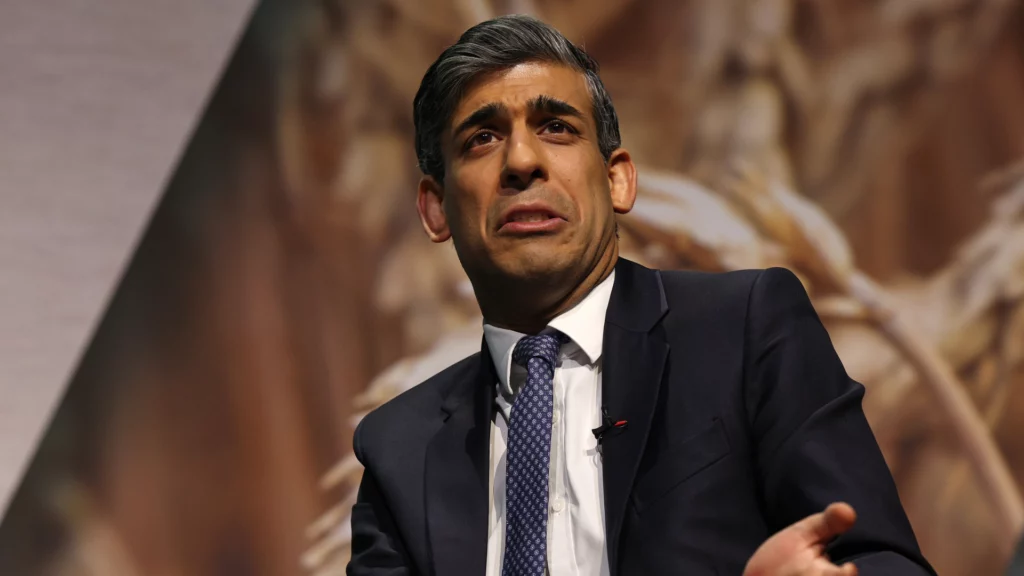UK Stablecoin Regulation in “Next Six Months”: Rishi Sunak’s Last Act?

Rishi Sunak's days as Prime Minister of the UK may be numbered. Photo by Adrian Dennis - WPA Pool/Getty Images.
Key Takeaways
- As Chancellor, Rishi Sunak wanted to make the UK a major crypto hub but has often been preoccupied with other challenges as Prime Minister
- Now, with polls suggesting the government is on course for a crushing defeat in the next general election, Sunak wants to introduce new crypto rules before he leaves office.
- According to reports, the government intends to introduce stablecoin legislation in the next 6 months.
Rishi Sunak has made no secret of his interest in crypto, often endorsing a vision for the UK economy as a global crypto hub. But the realities of government mean that 16 months into his premiership, Sunak has only sketched a rough outline of the country’s emerging crypto policy
To his credit, under City Minister Andrew Griffith, the 2023 Financial Services and Markets Bill (FSMB) enacted the UK’s most far-reaching attempt at crypto regulation to date. But the legislation is only a start. And with polls suggesting that the government could face a crushing defeat in the next election, while they still can, Sunak’s government is moving to finish what the FSMB started. This could be the government’s last chance to establish stablecoins as a regulated form of payment.
UK Crypto Regulation So Far
As in Japan and the US, attempts to regulate stablecoins in the UK have gathered steam in the last year.
The first step came with the FSMB. The bill allowed the Financial Conduct Authority (FCA) and the Bank of England (BoE) to regulate stablecoins as a payment instrument. It also allowed the Treasury to include systematically important stablecoin issuers within its administration regime.
Having been handed responsibility for crypto regulation by the FSMB, in November, the BoE initiated a consultation, alongside a discussion paper outlining its ambitions.
Building on the Bank’s efforts, the government has moved to enact new legislation to enshrine the recommendations in law.
Government Eyes Stablecoin Regulation in Next Six Months
Griffith’s successor, Bim Afolami, said the government wanted to bring a bill covering both stablecoins and crypto asset staking.
He said: “We’re very clear that we want to get these things done as soon as possible. And I think over the next six months, those things are doable.”
Doable they might be, but if the government takes more than six months to finalize regulations, it may not get the chance. That’s because the next general election is set to occur no later than January 2025. The bad news for Sunak and his supporters is that most pundits anticipate the vote taking place this autumn.
Can Stablecoin Regulation Survive a Change of Government?
So far in 2024, opinion polling has placed the Conservatives around 20 points behind Labour. Unless something drastic happens, the opposition party is on course to win the next election by a considerable margin.
Labour has yet to outline any specific crypto policy. However, its leader, Sir Keir Starmer, has made it clear that he will repeal Tory legislation that doesn’t align with his party’s principles.

For example, Starmer has already promised to scrap the government’s amnesty for crimes committed during Northern Ireland’s Troubles. He also said an incoming Labour government would repeal Sunak’s anti-strike laws.
Sunak’s proposed stablecoin bill is, however, less contentious. Also, the government attempts at crypto regulation have mostly gained cross-party support.
Given the time it takes to craft and pass legislation, Sunak may not have many chances left. So, why waste what his final months in office on something only for the next government to reverse it?
Having championed the UK’s crypto sector since his days in Boris Johnson’s Cabinet, it is somewhat fitting that stablecoins take center stage in what might be one of Sunak’s final acts as Prime Minister.


